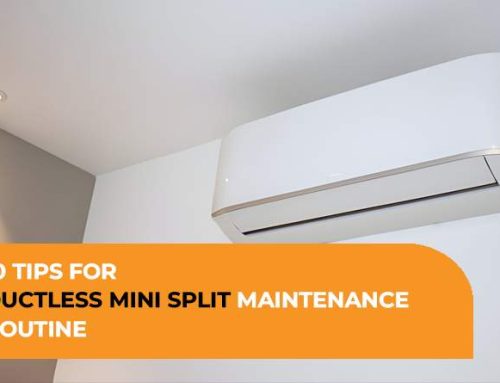If your central AC unit is not cooling your home as it should, one possible reason is that it needs to be recharged with refrigerant. As a homeowner, it’s important to know how often your central AC unit needs to be charged with refrigerant. While the frequency can vary depending on the model and make of your unit, as well as the climate you live in, there are some general guidelines you can follow. Here’s what you need to know about charging your central AC unit with refrigerant.
AC units vary in terms of how often they need to have the refrigerant charged. AC units running properly with the right amount of refrigerant should not need charging for two to five years. However, AC units that are older or not maintained properly might need to be charged more frequently. It is important to regularly inspect AC systems and fix any minor issues such as leaks before they turn into major problems so AC owners can enjoy the maximum lifespan from their AC unit without needing constant refilling of refrigerant.
Warning Signs of Refrigerant Leak
Refrigerant leaks are one of the most common problems that occur in air conditioning (AC) systems. The refrigerant is a critical component of the AC unit and serves as both a coolant and an insulator in order to keep temperatures inside the home or building comfortable. Leaks can be caused by faulty installation, age, wear, and tear, or even a manufacturing defect.
Common signs of refrigerant leaks in an AC unit include fluctuations in temperature, warm air coming from the vents, increased humidity levels indoors, and higher than normal energy usage. If you experience any of these issues, it is important to have your AC unit inspected by a professional technician to determine if there is a refrigerant leak.
Don’t Let AC Leaks Get You Down: Follow These Steps to Fix the Problem
- Turn off the AC unit. If you notice that your AC unit is leaking, it’s important to turn it off immediately in order to prevent further water damage.
- Identify the source of the leak. You need to determine where exactly the leak is coming from so you can take appropriate steps to repair it. Check the AC unit system for signs of a blockage or damage in the pipes, as well as any obvious signs of leakage.
- Repair the leak. Depending on the severity and type of AC unit leak you have, there are different ways to repair it. If the cause is a damaged pipe, you may need to replace it. If the AC unit is clogged, you may need to use a brush or unclogging solution to clear it out.
- Clean up any messes. After identifying and repairing the AC unit leak, be sure to clean up any water damage that occurred as a result of the leak. This includes mopping up standing water and drying out wet items.
- Check for Ac unit issues regularly. In order to prevent AC unit leaks from occurring in the future, be sure to check your AC unit on a regular basis for any signs of damage or blockages. This will help ensure that it stays in optimal condition for years to come.
By following these steps if you experience Ac unit leak problems, you can help protect your AC unit and prevent further water damage. Be sure to contact a professional AC unit technician for assistance if needed.
The Best Time to Charge Your Central AC Unit
Charging your AC unit is essential for keeping it in optimal running condition. The best time to charge your AC unit is during the early spring or late fall; temperatures in these seasons are not too hot or cold, allowing technicians to perform the necessary maintenance without any drawbacks. Make sure to schedule maintenance appointments with qualified experts well in advance so they have time to properly inspect and charge the AC unit. Doing this will ensure your AC unit runs effectively during those hot summer months and brings you maximum comfort all year long.
Conclusion
A yearly maintenance visit from a qualified technician will include checking the refrigerant levels and making any necessary adjustments. You should never have to add refrigerant to your AC unit on your own, so if you find that you need to frequently recharge your unit, it may be time for a replacement. Educating yourself on the lifespan of common household appliances can help you budget for replacements and avoid pitfalls down the road.
If you’re experiencing any of these warning signs and suspect that your AC could be leaking refrigerant, don’t hesitate to call for help. Our professionals at The Bee Heat & AC are trained to identify the source of the issue and repair it quickly and safely. With prompt attention, we can help you avoid bigger problems down the line! Contact us today to get started.


